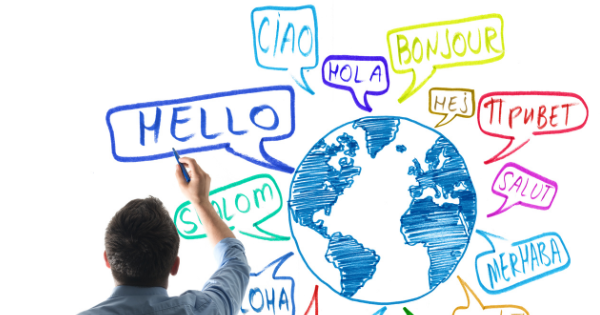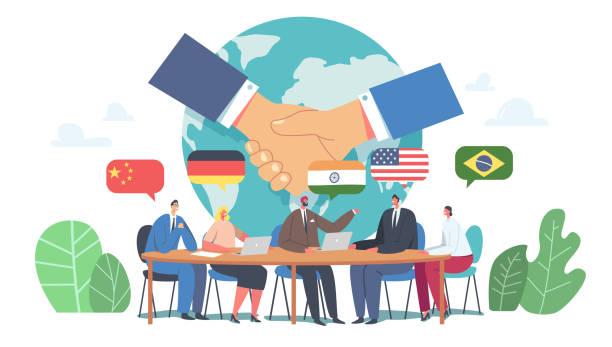The role of translation in diplomacy and international relations
Translation plays a crucial role in diplomacy and international relations, enabling communication across linguistic and cultural barriers. Diplomats and officials rely on accurate and reliable translation services to convey messages and negotiate agreements between countries, cultures, and communities.

In this article, we will explore the role of translation in diplomacy and international relations and explain why it is so essential for effective communication and cooperation between nations.
The Importance of Diplomatic Translation
In diplomatic settings, translation is essential for ensuring that messages are conveyed accurately and effectively between different cultures and languages. Diplomats must be able to communicate their positions, concerns, and proposals in a way that is easily understood by their counterparts, even if they do not speak the same language.
Translation is also essential for ensuring that negotiations are conducted in a fair and transparent manner, with all parties fully understanding the terms and implications of any agreements reached. Accurate translation can help to prevent misunderstandings, misinterpretations, and conflicts, ultimately leading to greater cooperation and mutual benefit.

Moreover, translation plays a crucial role in promoting cultural understanding and empathy, enabling diplomats to appreciate the nuances of different languages, cultures, and perspectives. By fostering greater understanding and appreciation for different cultures, translation services can help to promote peace, harmony, and cooperation between nations and communities.
The Role of Translation in International Relations
Translation is also essential for effective communication in other areas of international relations, including trade, commerce, and humanitarian aid. In today’s globalized economy, businesses must be able to communicate effectively with customers, suppliers, and partners from all around the world. Translation services enable them to do so, breaking down language barriers and expanding their reach to new markets.

Translation also plays a vital role in humanitarian aid, enabling aid workers to communicate with local communities and provide essential services and resources. Whether it is in disaster relief efforts or long-term development projects, translation services are essential for ensuring that aid is delivered effectively and efficiently, and that the needs of local communities are fully understood and addressed.
Translation can also play a crucial role in promoting democracy and human rights, enabling individuals to access information and resources even if they do not speak the language in which they are written. By providing access to information and promoting greater literacy and education, translation services can help to promote greater equality and access to justice for all.
The Challenges of Diplomatic Translation
While the role of translation in diplomacy and international relations is essential, it also presents significant challenges. One of the most significant challenges is the need for accuracy and precision in translation. In diplomatic settings, even small errors in translation can have significant consequences, leading to misunderstandings, misinterpretations, and even conflicts.
Moreover, diplomatic translation requires an in-depth knowledge of the cultural and historical context in which messages are being conveyed. Diplomats and officials must be able to appreciate the nuances of different languages and cultures, and understand how these can impact the interpretation of messages.

In addition, translation in diplomatic settings often involves complex and technical language, such as legal or economic terminology. Translators must be able to navigate these technical terms with ease, ensuring that the meaning of the original message is conveyed accurately and without ambiguity.
Finally, diplomatic translation requires a high degree of confidentiality and discretion. Diplomats and officials must be able to trust that their messages will be translated accurately and without bias, and that sensitive information will not be leaked or disclosed.
The Future of Diplomatic Translation
As the world becomes increasingly globalized and interconnected, the role of translation in diplomacy and international relations is only set to increase. With the advent of new technologies such as artificial intelligence and machine learning, translation services are becoming more sophisticated and efficient, enabling diplomats and officials to communicate more effectively and efficiently across linguistic and cultural barriers.
In conclusion, translation plays a vital role in diplomacy and international relations, enabling effective communication and cooperation between nations and cultures. Accurate and reliable translation services are essential for ensuring that messages are conveyed accurately, negotiations are conducted transparently, and agreements are reached fairly. Translation also promotes cultural understanding and empathy, contributing to greater harmony and cooperation between nations and communities.
However, diplomatic translation presents significant challenges, including the need for precision, cultural sensitivity, technical knowledge, and confidentiality. With the advent of new technologies, translation services are becoming more sophisticated and efficient, but the role of human translators in diplomatic settings remains essential. Ultimately, the importance of translation in diplomacy and international relations cannot be overstated, as it is fundamental to promoting global harmony, understanding, and cooperation.




